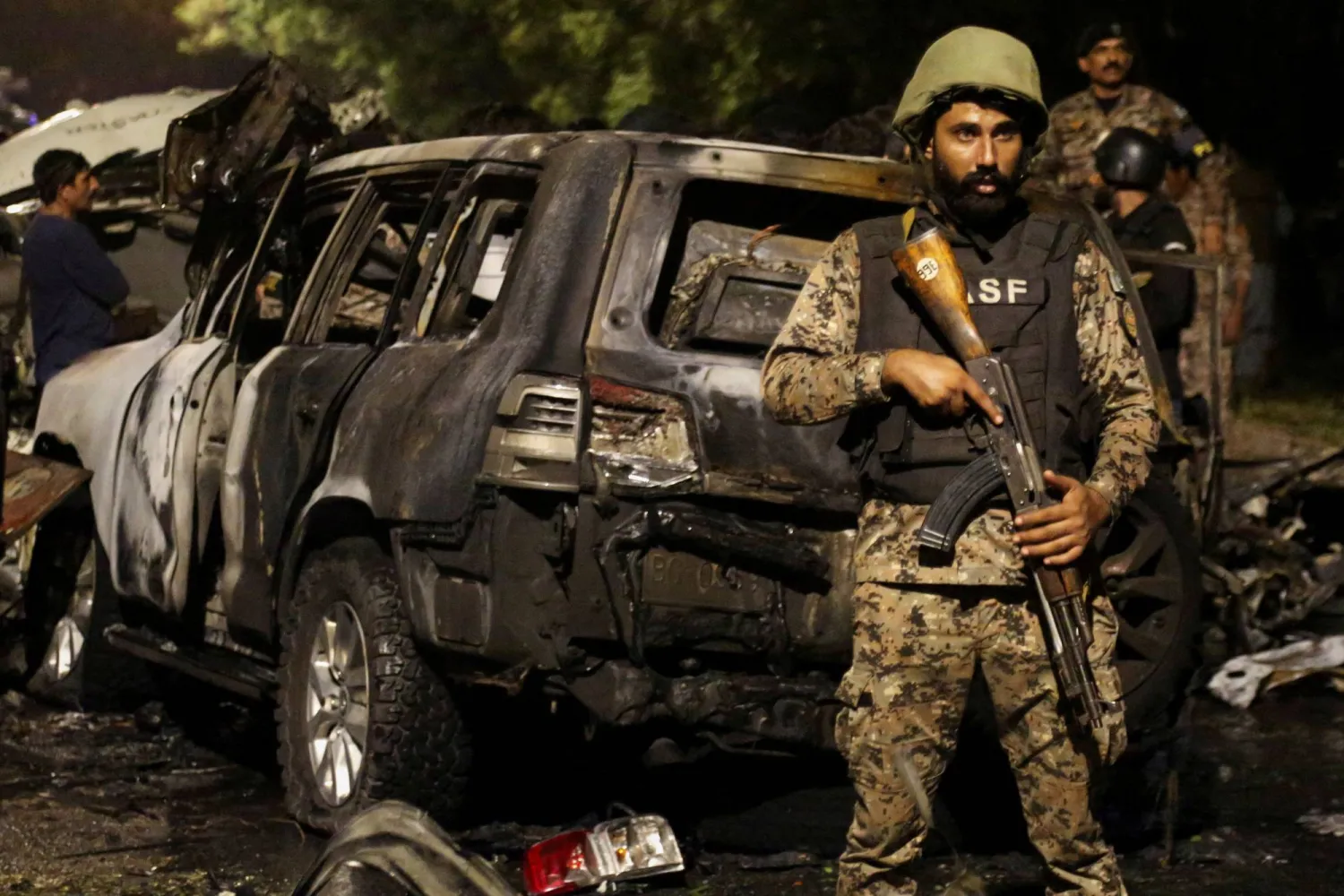Gunmen opened fire on passenger vehicles in a tribal area in northwestern Pakistan on Thursday, killing at least 38 people and wounding 29, the chief secretary of the Khyber Pakhtunkhwa province, Nadeem Aslam Chaudhry, said.
Among the fatalities in the attack, which occurred in the Kurram tribal district, were a woman and a child, Chaudhry said, adding: “It’s a major tragedy and death toll is likely to rise."
Tensions have existed for decades between armed Shia and Sunni Muslims over a land dispute in the tribal area that borders Afghanistan.
No group claimed responsibility for the incident.
"There were two convoys of passenger vehicles, one carrying passengers from Peshawar to Parachinar and another from Parachinar to Peshawar, when armed men opened fire on them,” a local resident of Parachinar, Ziarat Hussain told Reuters by telephone, adding that his relatives were traveling from Peshawar in the convoy.
President Asif Ali Zardari, in a statement, strongly condemned the attack on passenger vehicles.
Gunmen Attack Pakistan Passenger Vehicles, Killing at Least 38 People

FILE PHOTO: A member of the Airport Security Force ASF stands guard near the wreckage of vehicles after an explosion near Jinnah International Airport in Karachi, Pakistan October 6, 2024. REUTERS/Shakil Adil/File Photo

Gunmen Attack Pakistan Passenger Vehicles, Killing at Least 38 People

FILE PHOTO: A member of the Airport Security Force ASF stands guard near the wreckage of vehicles after an explosion near Jinnah International Airport in Karachi, Pakistan October 6, 2024. REUTERS/Shakil Adil/File Photo
لم تشترك بعد
انشئ حساباً خاصاً بك لتحصل على أخبار مخصصة لك ولتتمتع بخاصية حفظ المقالات وتتلقى نشراتنا البريدية المتنوعة







